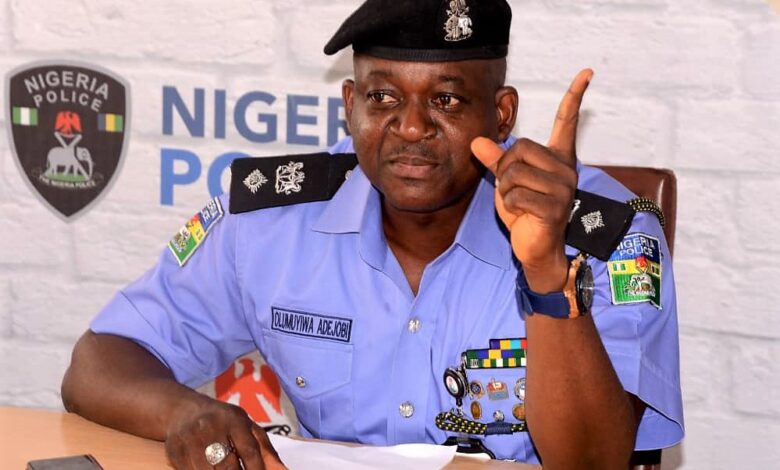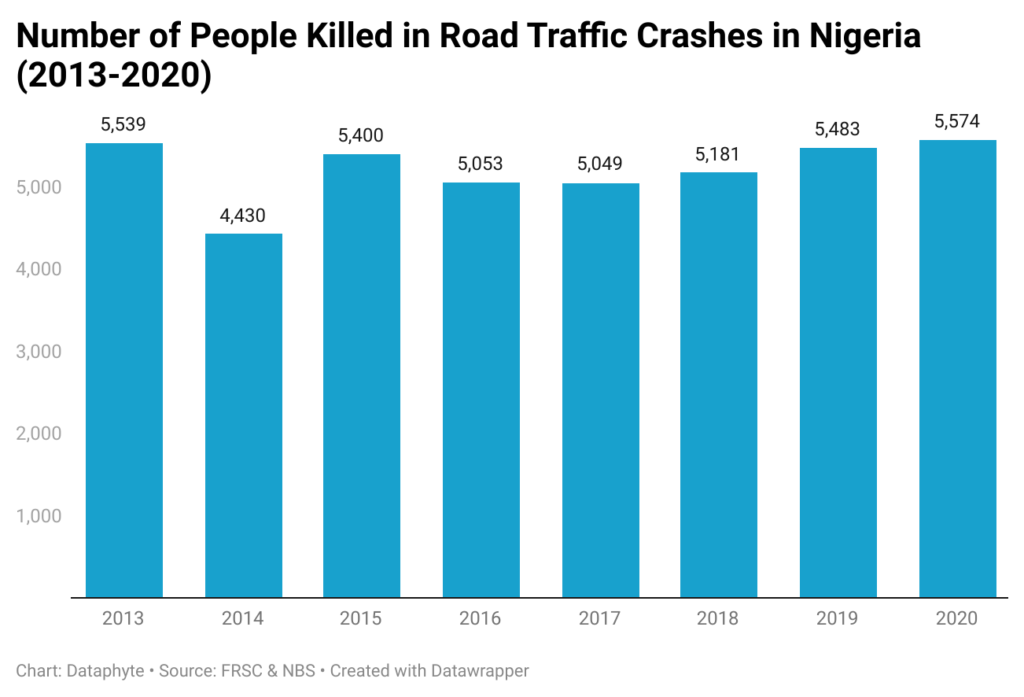Factcheck: Road Crashes Not Reason For ‘Almost 80%’ Of Deaths In Nigeria
Not if we consider reports of people dying from various fatal health conditions and insecurity.

Nigeria’s federal police spokesperson, Olumuyiwa Adejobi, said in a tweet on Wednesday, May 18, that nearly four-fifths of deaths in the country are caused by road accidents, but this is not accurate.
“Reckless Driving: the current common enemy of Nigerians. Do you know that presently in Nigeria, road crashes account for almost 80% of our mortality rate due to reckless driving on our highways. Many don’t even attend driving schools anymore bef[ore] they procure drivers license,” Adejobi wrote on the microblogging platform where Nigeria’s police force has generally been active.
The tweet attracted more than 330 likes and was shared over a hundred times.
Many of those who replied agreed with the claim, with some suggesting poorly maintained roads were responsible for more accidents than reckless driving.

Figures related to road traffic crashes are compiled by the Federal Road Safety Corps (FRSC) and published by the National Bureau of Statistics (NBS).
According to an analysis of these figures done by Dataphyte, a research and data analytics organisation, at least 41,709 people lost their lives to road accidents in Nigeria between 2013 and 2020 — that is, an average of 5,214 every year.
The worst fatality of 5,574 was recorded in 2020.

Though these figures are high, especially considering there are more road traffic deaths in Sub-Saharan Africa than in other parts of the world, there are other more alarming factors behind Nigeria’s mortality rate.
One is Malaria. According to the latest World Malaria Report produced by the World Health Organisation (WHO), an estimated 1.4 million lives were lost to the tropical disease in Nigeria between 2013 and 2020. The fatality from road crashes in the same period is less than 3 per cent of this number.
In 2020, tuberculosis alone killed 156,000 people in Nigeria, almost as high as the number of people who died due to malaria the same year.
A review of maternal and neonatal death statistics between 2013 and 2020 as published by the World Bank shows a similar pattern. There were 2.13 million neonatal deaths in the eight-year period and between 2013 and 2017, there were 332,000 maternal deaths in Nigeria.
Again, between about 16,100 and 29,000 Nigerians die every year due to smoking and tobacco-caused diseases.
Another major cause of death in Nigeria is insecurity.
Analysis of data gathered by the Nigeria Security Tracker (NST) revealed that between 2013 and 2020, at least 70,651 lives were lost due to violent incidents in different parts of the country.
The death tolls for each year exceeded those from road crashes except for 2017 when 4,618 were reported to have been killed due to insecurity.

The police spokesperson’s claim would, however, be closer to the truth if what he meant to say was that about 80 per cent of road accidents were due to reckless driving.
According to figures from the FRSC, only 30 (0.75 per cent) of the 3,983 crashes recorded for the first quarter of 2021 were caused by bad roads. The rest were due to faults from the drivers or with the vehicles, especially including speed violations, sign light violations, wrongful overtaking, dangerous driving, tyre bursts, and brake failure.
The same trend can be noticed in figures from 2018 and 2019 shared in the latest NBS social statistics report.
Support Our Journalism
There are millions of ordinary people affected by conflict in Africa whose stories are missing in the mainstream media. HumAngle is determined to tell those challenging and under-reported stories, hoping that the people impacted by these conflicts will find the safety and security they deserve.
To ensure that we continue to provide public service coverage, we have a small favour to ask you. We want you to be part of our journalistic endeavour by contributing a token to us.
Your donation will further promote a robust, free, and independent media.
Donate HereStay Closer To The Stories That Matter




